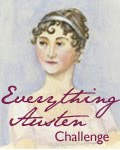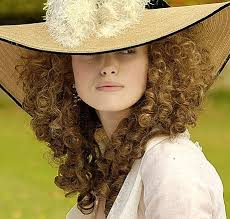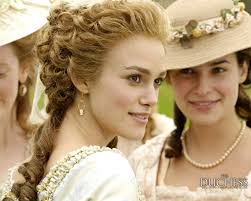
This summer holidays 2009 have been the occasion to read some Victorian novels I had only read about but never actually read through. I’m very happy of my decision . I’ve recently read SHIRLEY by Charlotte Bronte, RUTH by Elizabeth Gaskell, AGNES GREY and THE TENANT OF WILDFELL HALL by Anne Bronte. Even though I’ve read and studied plenty about and from the Victorian Era, my to–be- read list is still very long. Unfortunately, I’m going back to school next week and , from then on, I will have to read a lot of students’ papers and texts for the preparation of my classes and will be left very little time to read for pleasure.
I’ve just finished THE TENANT OF WILDFELL HALL and I can honestly say it is the one I loved most among the four novels mentioned above. Anne Brontë, the youngest of the three Bronte sisters, tragically fated to die early in life before her writing talents could be as widely appreciated as her older sisters', was in many ways the most daring of the three, exploring themes and characters that shocked readers in her day, but which seem presciently current to our present-day sensibilities. Anne is not and was not as popular as her sisters – their JANE EYRE and WUTHERING HEIGHTS have become evergreen classics - but she was a great talent too. In AGNES GREY and , especially, in THE TENANT she creates unconventional heroines, conveys strong anticonformist ideas, draws involving plots, entertains and makes the reader aware of unpleasant realities, too often hidden because uncomfortable to the Victorian “perbenist” middle class.

Helen Huntingdon, the Tenant of Wildfell Hall, is a very determined, warm, passionate, brave young woman –far from the prude she is often characterized as - who refuses to be a silent victim and decides to leave her brutish, drunkard husband - thought to be based on Anne's brother, Branwell; she is not only flouting convention but even going against the laws of the land. Fleeing with her small son, she decides to lead an independent existence in a desolate, isolated countryside mansion in Yorkshire earning a living with her paintings. She pretends to be a young widow – do you remember Gaskell’s RUTH? – and surrounds herself with secrecy. But she soon finds herself the victim of local slander.

This novel written in the 1840s is of a startling modernity in its bold treatment of the issue of women’s equality and dignity and is unforgettable in its intensity, sincerity and psychological depth. I’m not exaggerating. Helen, her decadent husband and their complicated relationship are dealt with an extraordinary psychological insight. Helen can be considered a forerunner of Ibsen's Nora in the Doll's House and Anne is very like Jane Austen in her sensitive and acute characterization.

The narrative structure of the novel is also quite interesting. It is as if you have two novels in one. At the beginning the story opens in an epistolary form and is narrated from Gilbert Markham’s point of view. The young generous Yorkshire yeoman is almost immediately fascinated by the mysterious strong-willed young widow Helen Graham and writes letters to his dear friend and brother-in-law, Halford. He tells him about how, little by little, he and Helen became attached and discovered their affinity and affection. But everybody seems sure of Helen’s scandalous past and present secret, so he starts doubting her being a widow too. Now there’s a complete change in the setting and form. Gilbert starts reading Helen’s personal journal, which she had given him as a sign of utter trust, in order to reveal him everything in detail about her mysterious past. Now the narrator is Helen and we know - from her point of view – about the disappointing unfortunate experience of her wrecked marriage. She is not a widow, then, but Mrs Hundington, this is why she is not free to return Gilbert’s love! And little Arthur, her son, is not an illeggitimate child as rumours suppose.
My review of the book stops here in order to avoid spoilers, if you haven’t already read THE TENANT OF WILDFELL HALL.
1996 BBC THE TENANT OF WILDFELL HALL 
After finishing the book I decided to watch the 1996 two-part adaptation I have in my DVD collection. I hadn’t wanted to see it before reading the novel. It has been waiting only for a few months though, not so long. There are ,of course, many cuts in the film version and several differences from the book . It is anyway an honest TV movie with impressive settings and very good actors. Tara Fitzgerald as Helen, Toby Stephens (Mr Rochester in BBC 2006 Jane Eyre) as Gilbert Markham and Rupert Graves as Arthur Hundington give very convincing performances. This miniseries has a beautiful and sylvan visual flair that highlights the rugged beauty of the Yorkshire countryside, helping to paint a picture of these people made physicaly sturdy and perhaps emotionally hard by their surroundings.
For those of you who never have enough of period drama and go on with repeated viewings of Pride and Prejudice, Jane Eyre, Wuthering Heights or Sense and Sensibility, THE TENANT OF WILDFELL HALL will provide good entertainment with a distinctly different flavour that might make “little sister Anne” a new favourite.





 The writer Jimmy McGovern (same author as recent BBC series MOVING ON) tells the story behind the Gunpowder Plot in two parts, each centred on one of the monarchs.
The writer Jimmy McGovern (same author as recent BBC series MOVING ON) tells the story behind the Gunpowder Plot in two parts, each centred on one of the monarchs.

.jpg)






































